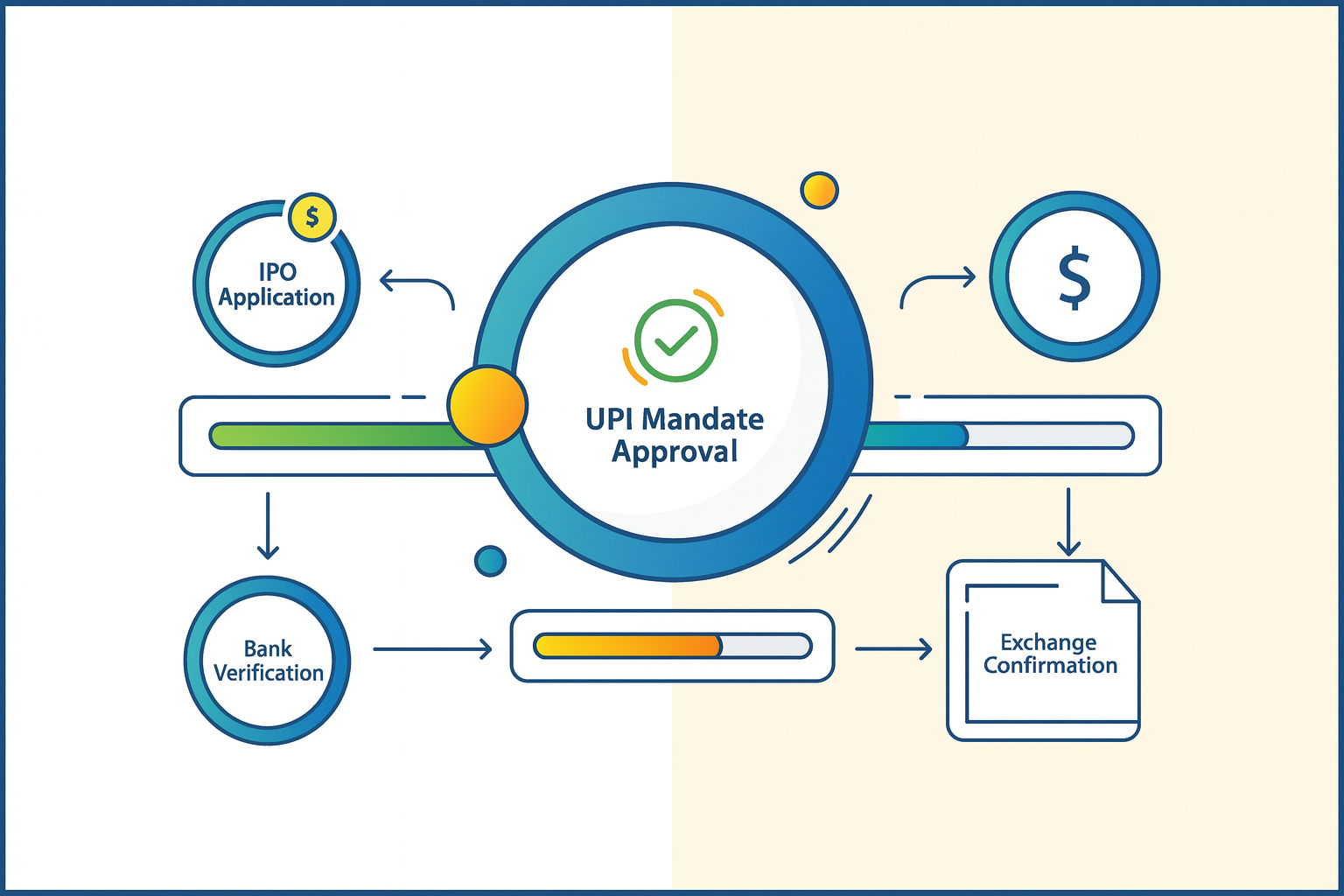What is a UPI Mandate?
A UPI mandate is a request that allows you to authorise recurring payments from your bank account through the Unified Payments Interface (UPI). This system is widely used in India and simplifies transactions, especially during events like Initial Public Offerings (IPOs). When you invest in an IPO, a UPI mandate ensures that the necessary funds are automatically transferred from your bank account to the issuer’s account on the specified date.
Importance of UPI Mandates in IPOs
UPI mandates play a crucial role in the IPO process. They enhance the efficiency and security of transactions, allowing investors like you to participate in public offerings without the need for physical paperwork or manual fund transfers. By using a UPI mandate, you can:
- Ensure timely payment for your shares.
- Reduce the risk of transaction failures.
- Enjoy a seamless investment experience.
The Approval Process for UPI Mandates
Steps Involved in the Approval Process
The approval process for a UPI mandate involves several key steps:
- Initiation: You begin by submitting a UPI mandate request through your bank or a financial service provider.
- Verification: Your bank verifies the details of the mandate, ensuring accuracy.
- Approval: Once verified, the bank processes the mandate, allowing for the scheduled payments.
- Notification: You receive a confirmation once the mandate is approved, which means you are all set for the IPO.
Factors Influencing Approval Time
Several factors can influence how long it takes for your UPI mandate to be approved:
- Bank Processing Time: Different banks have varying processing speeds. Some may approve mandates quickly, while others might take longer.
- Accuracy of Information: If the information provided is incorrect or incomplete, it can delay the approval.
- Volume of Requests: During busy periods, such as major IPO launches, banks may receive a high volume of requests, which can slow down the approval process.
Typical Timeframe for Approval
Average Duration for UPI Mandate Approval
On average, a UPI mandate approval can take anywhere from a few hours to a couple of days. In many cases, you might receive approval on the same day you submit your request. However, it’s prudent to allow for some buffer time, especially when there is a surge in applications, as seen during popular IPOs.
Variations Based on Different Scenarios
The timeframe can vary significantly based on the scenario:
- Standard Approval: If everything is in order, approval may occur within hours.
- High Demand IPOs: For highly anticipated IPOs, it may take longer due to the increased number of applications.
- Technical Issues: Occasionally, technical glitches or system maintenance may delay the process.
Common Issues and Delays
Reasons for Delayed Approvals
While the UPI mandate system is designed to be efficient, there are common reasons for delays:
- Incorrect Details: If there are errors in your bank account details or UPI ID, this can lead to rejection or delay.
- Bank Policies: Some banks may have stricter verification processes that could prolong the approval time.
- System Overload: During peak times, the system may experience overload, affecting processing speeds.
How to Resolve Approval Issues
If you encounter delays in your UPI mandate approval, here are steps you can take:
- Check Your Information: Review the details provided in your mandate request to ensure accuracy.
- Contact Your Bank: Reach out to your bank’s customer service for assistance. They can provide updates on your application status.
- Reapply if Necessary: If your mandate is rejected, you may need to submit a new request with the correct information.
Conclusion
Key Takeaways on UPI Mandate Approvals in IPOs
In conclusion, understanding UPI mandates and their approval process is vital for a smooth IPO investment experience. Here are the key takeaways:
- A UPI mandate allows automatic payments for IPO shares, making the process convenient and secure.
- The approval process typically takes a few hours to a couple of days, influenced by various factors.
- Delays can occur due to incorrect details, bank policies, or high demand, but these can often be resolved by checking your information and contacting your bank.
By being aware of these aspects, you can ensure that your investments are processed smoothly, allowing you to participate in exciting market opportunities with confidence.



